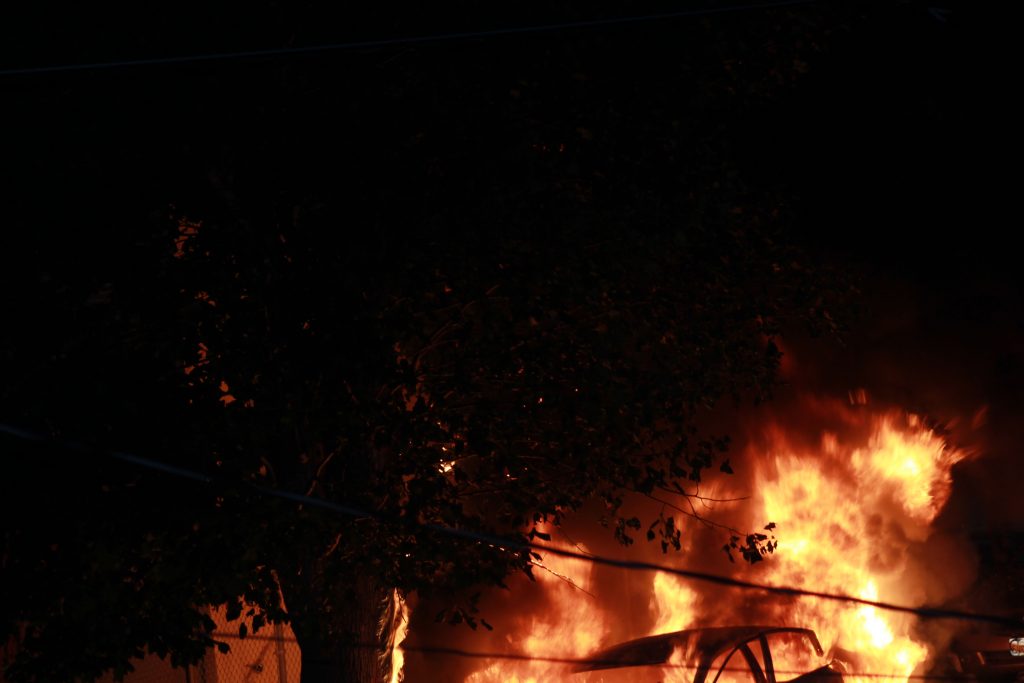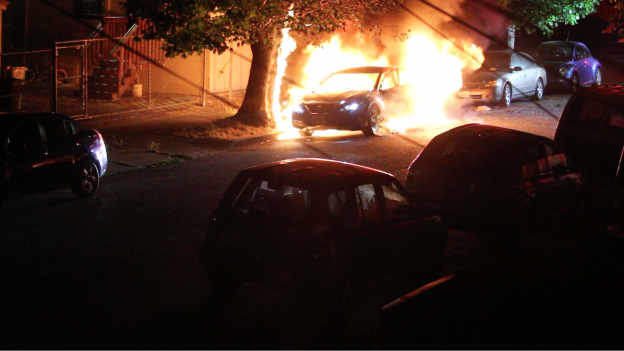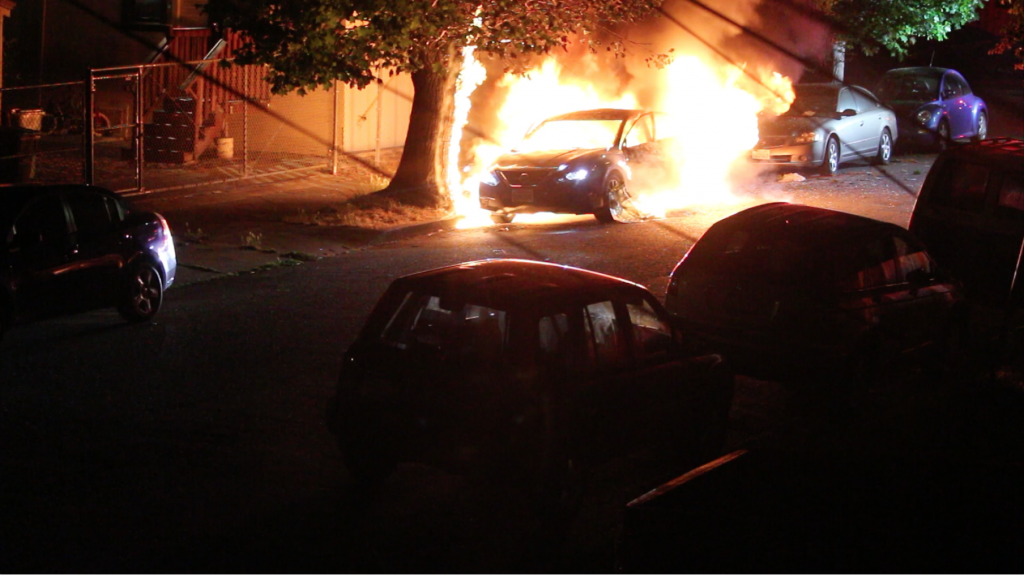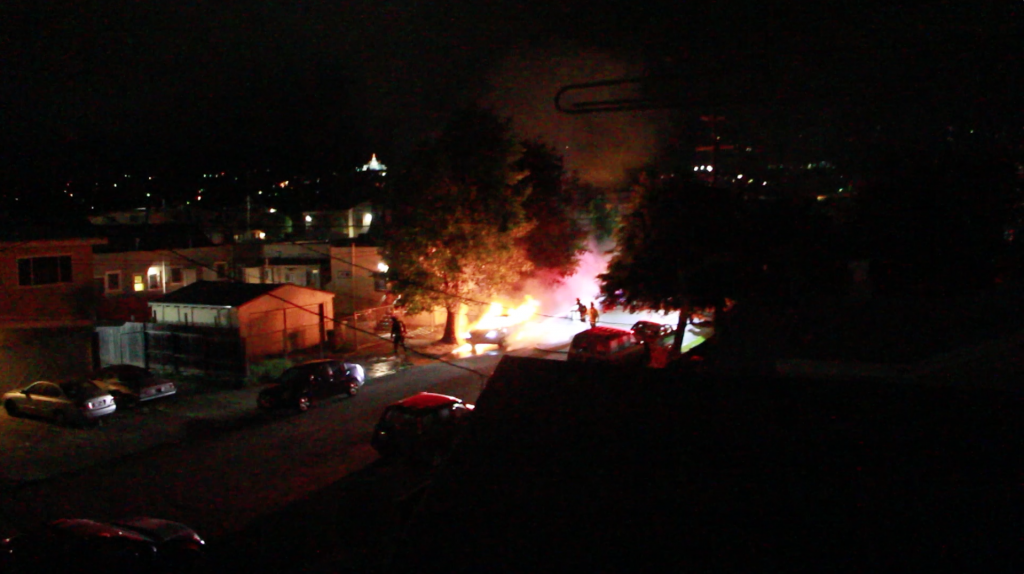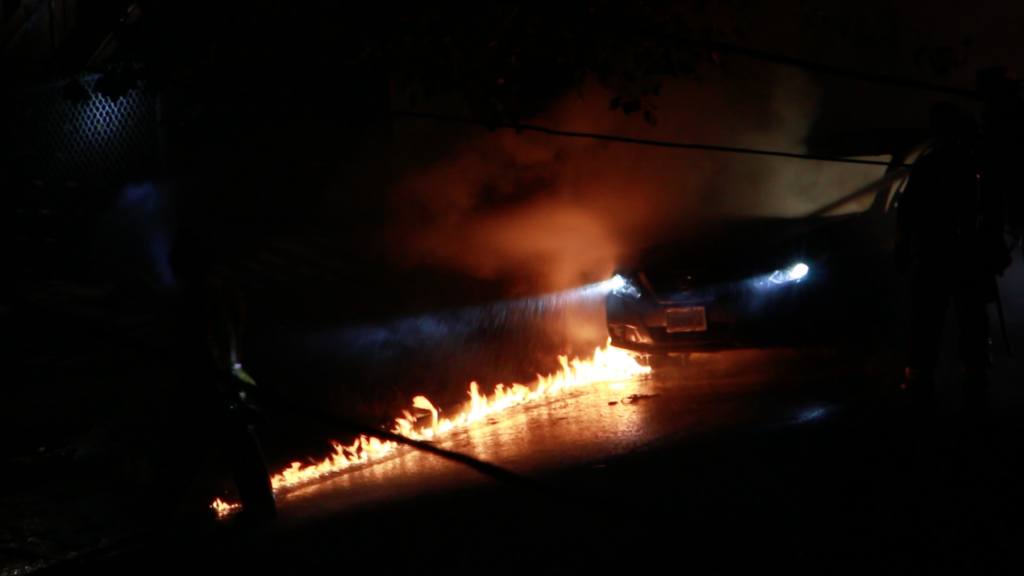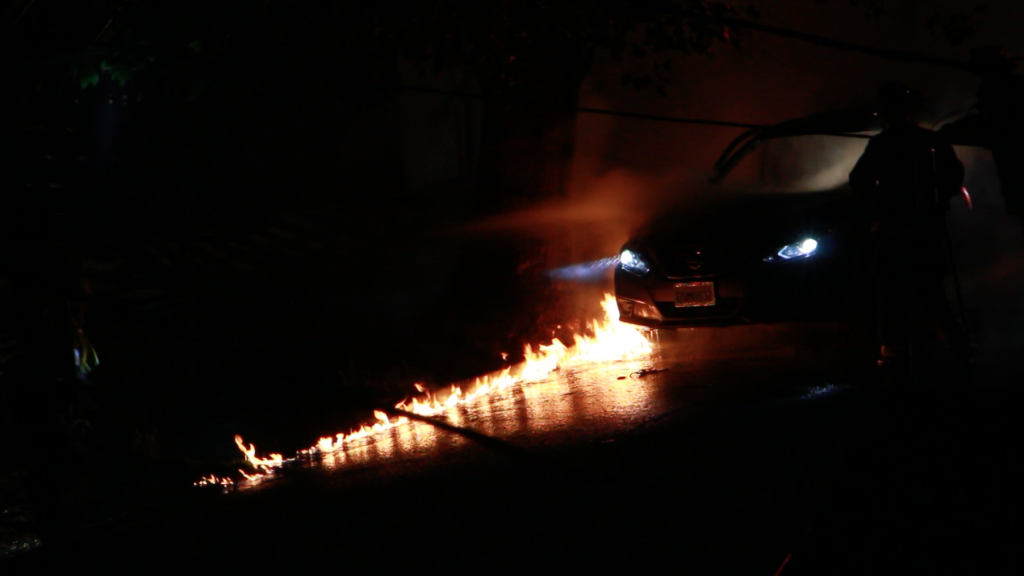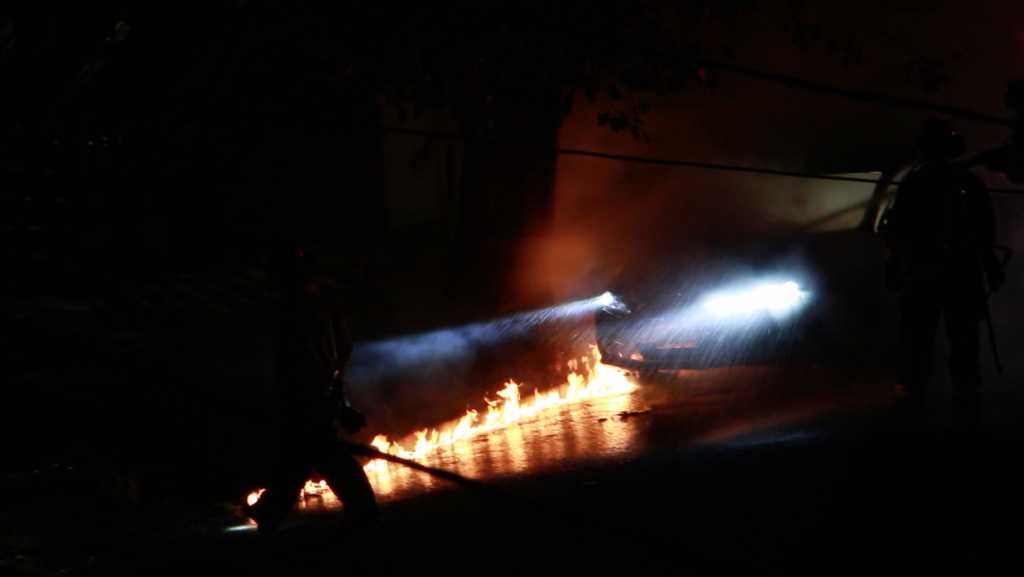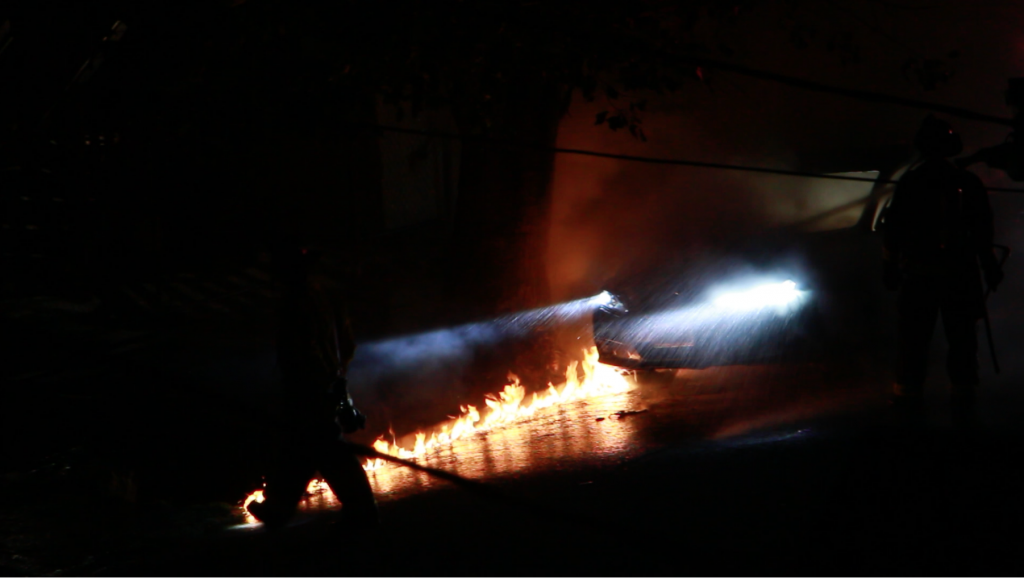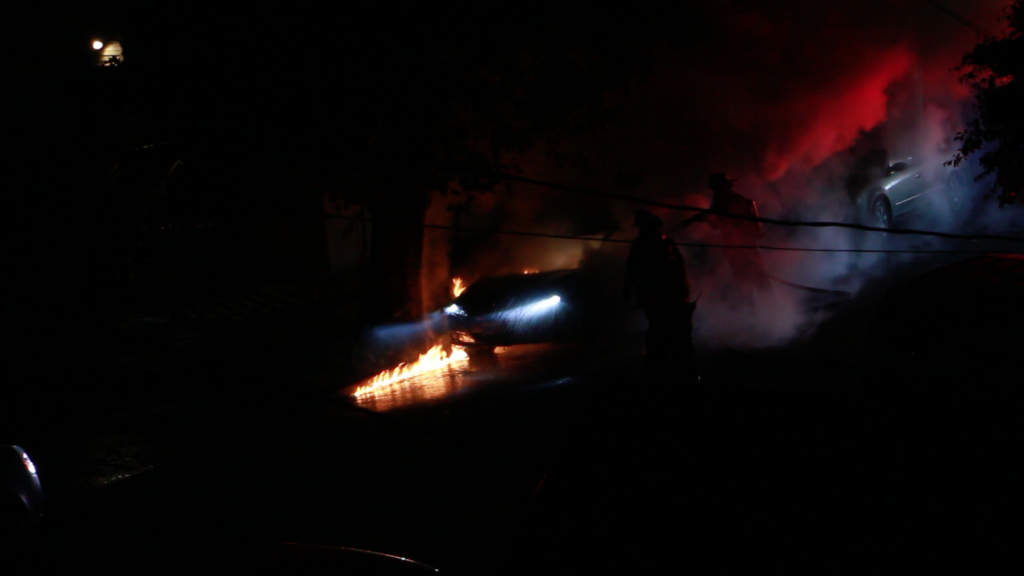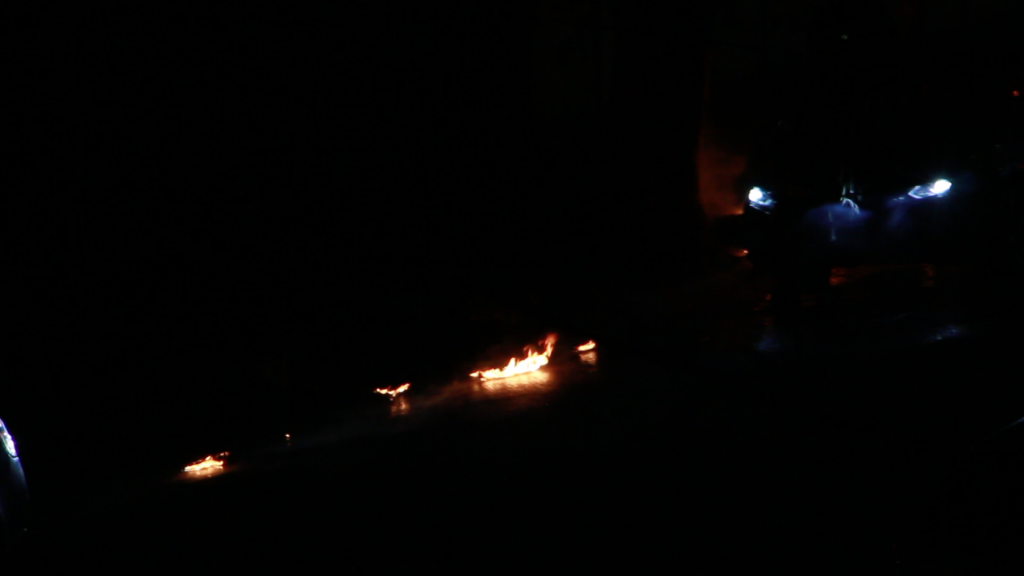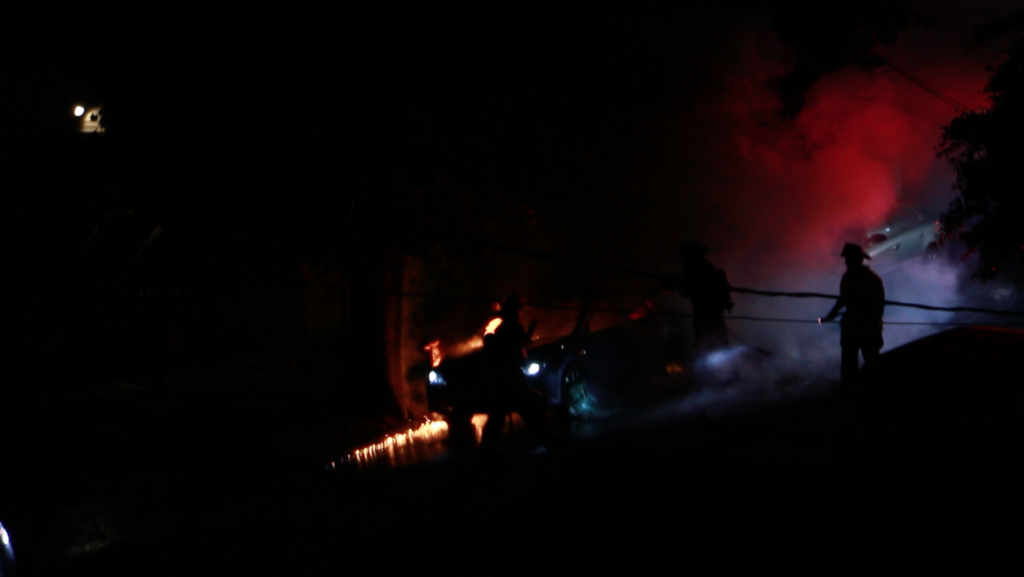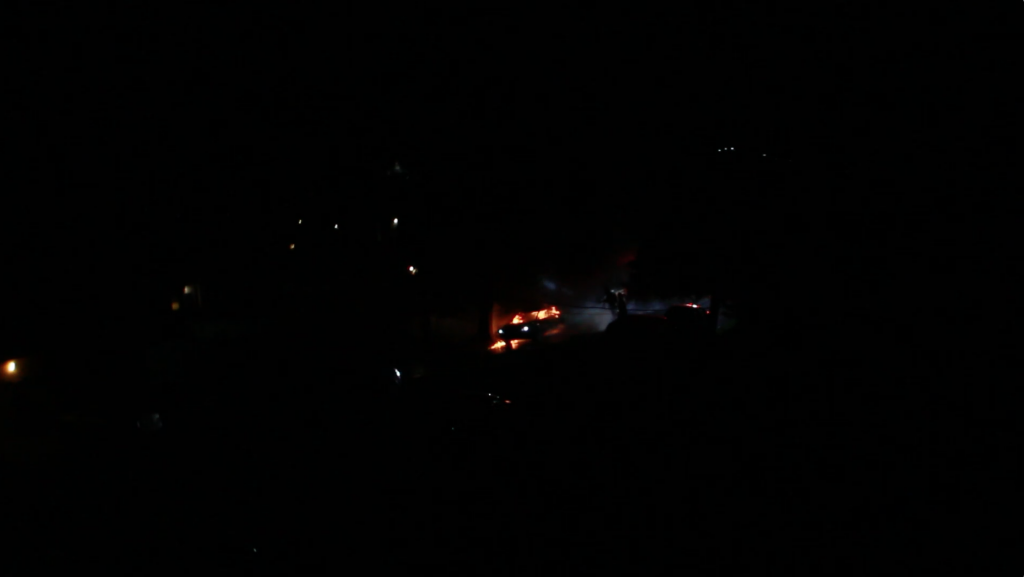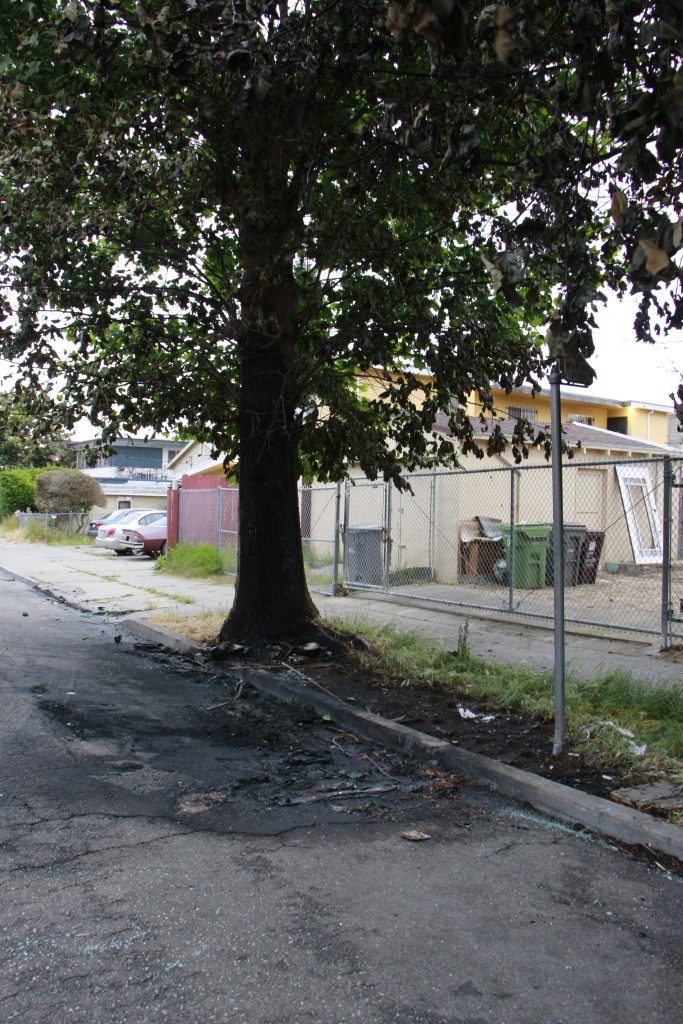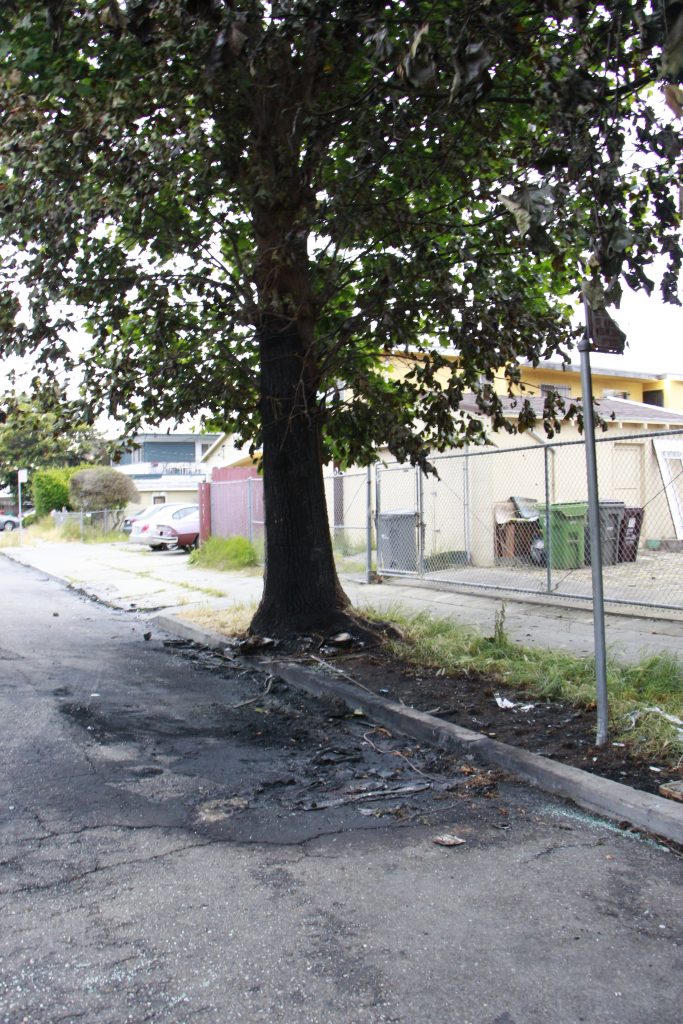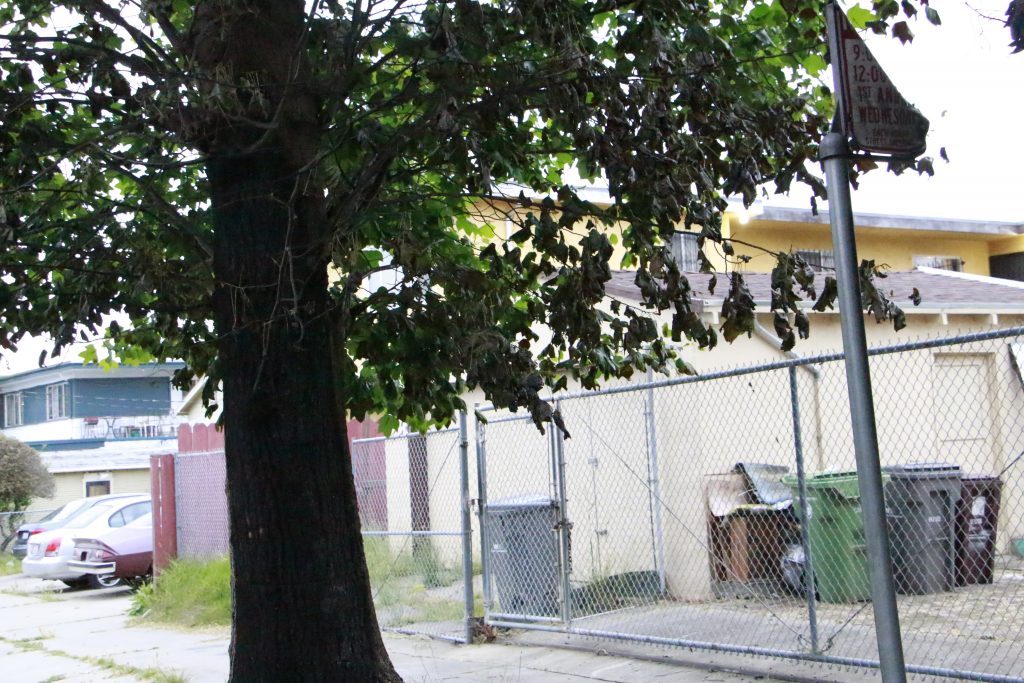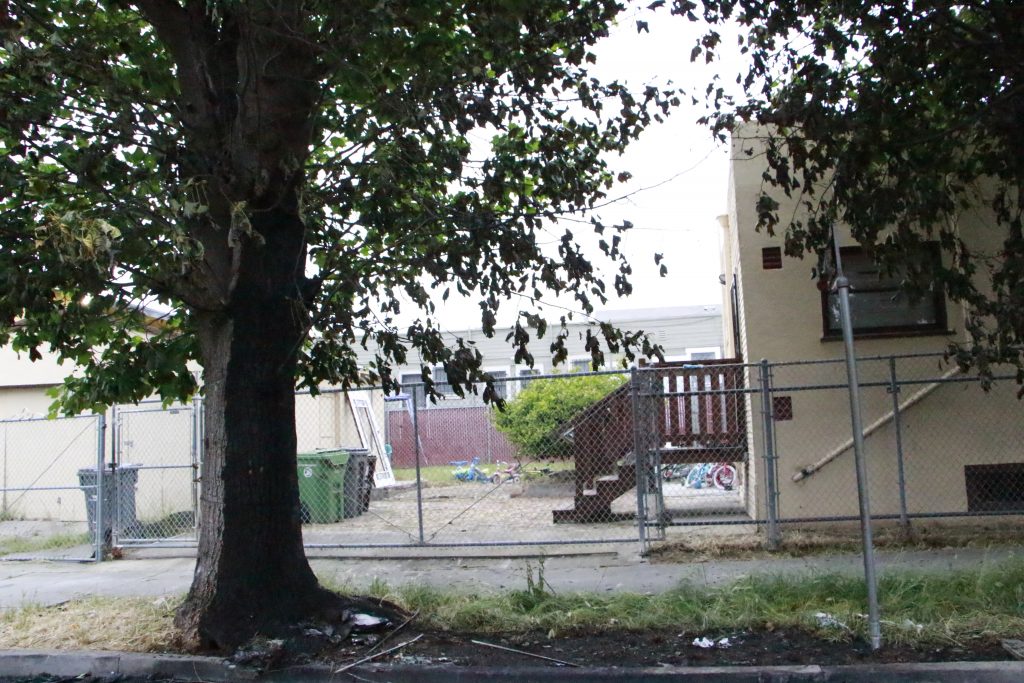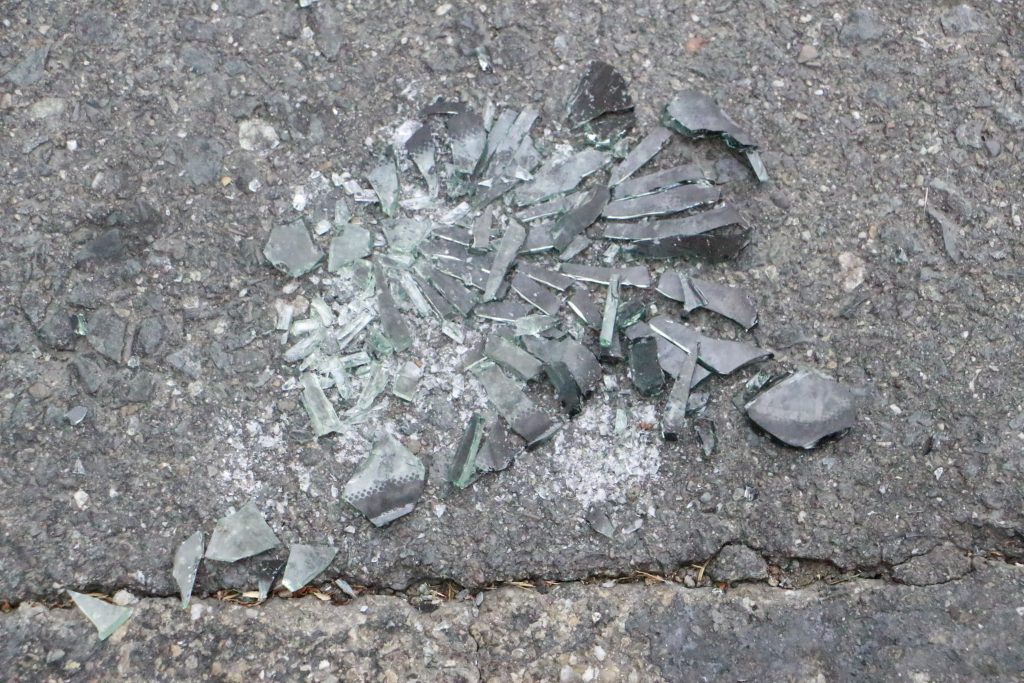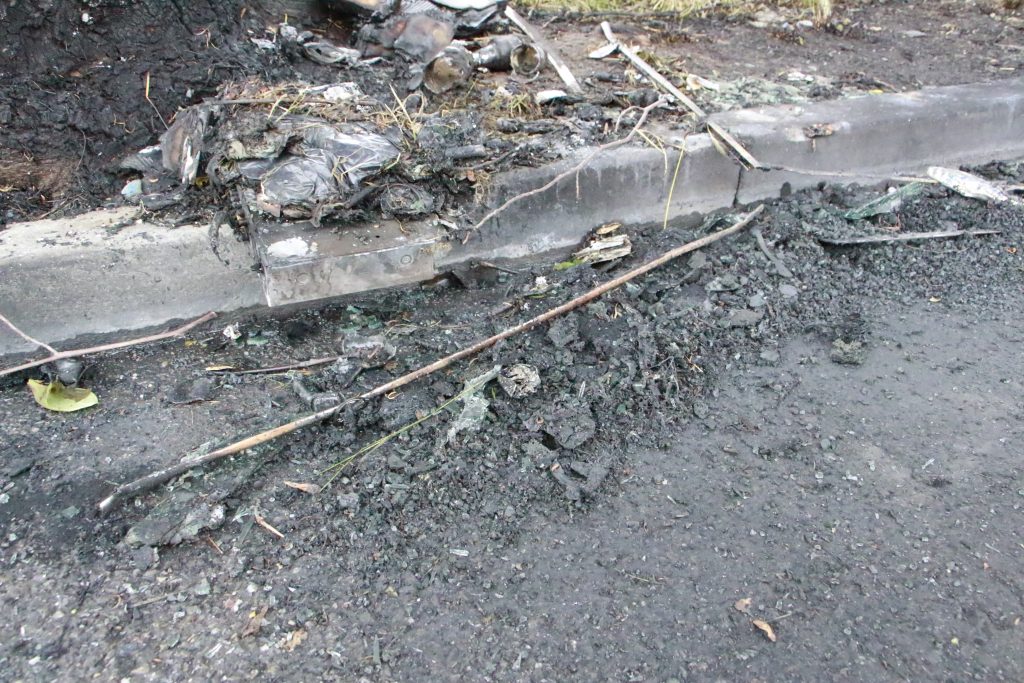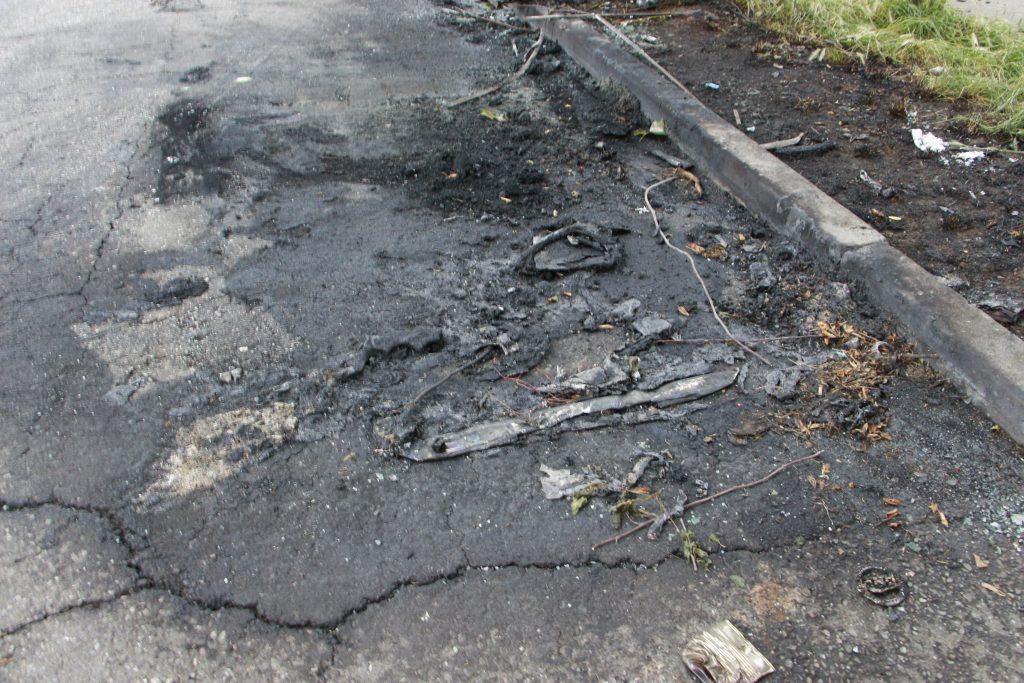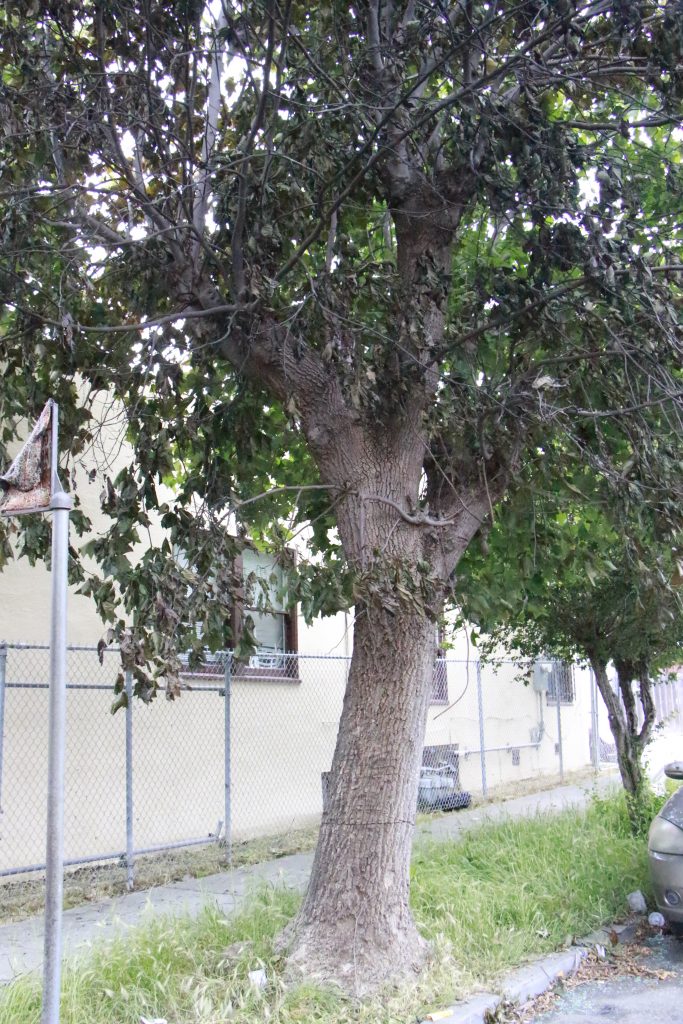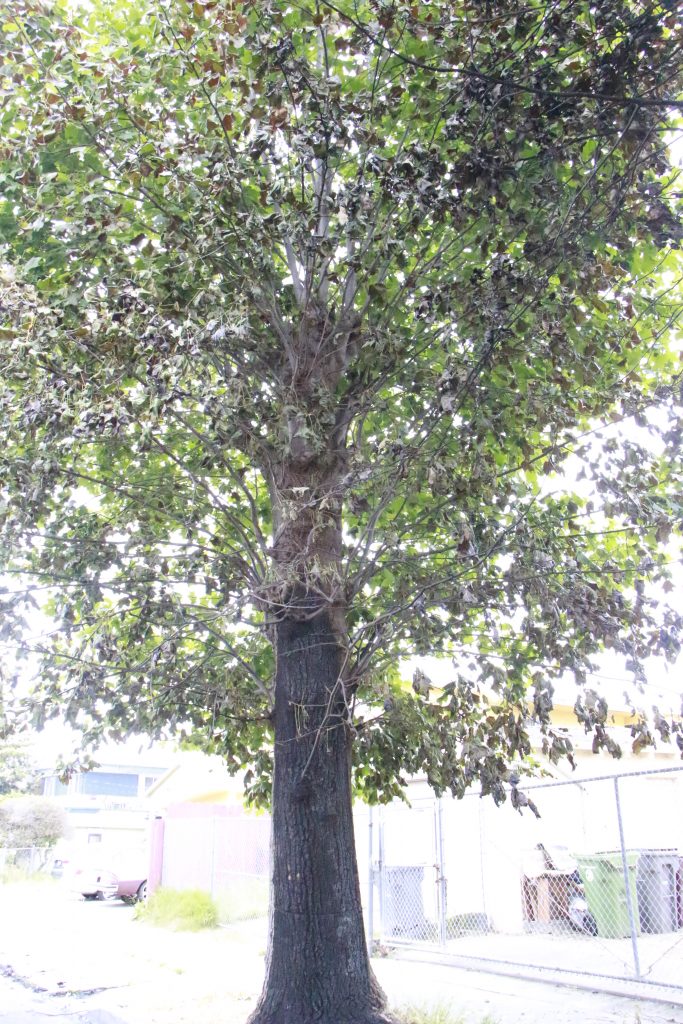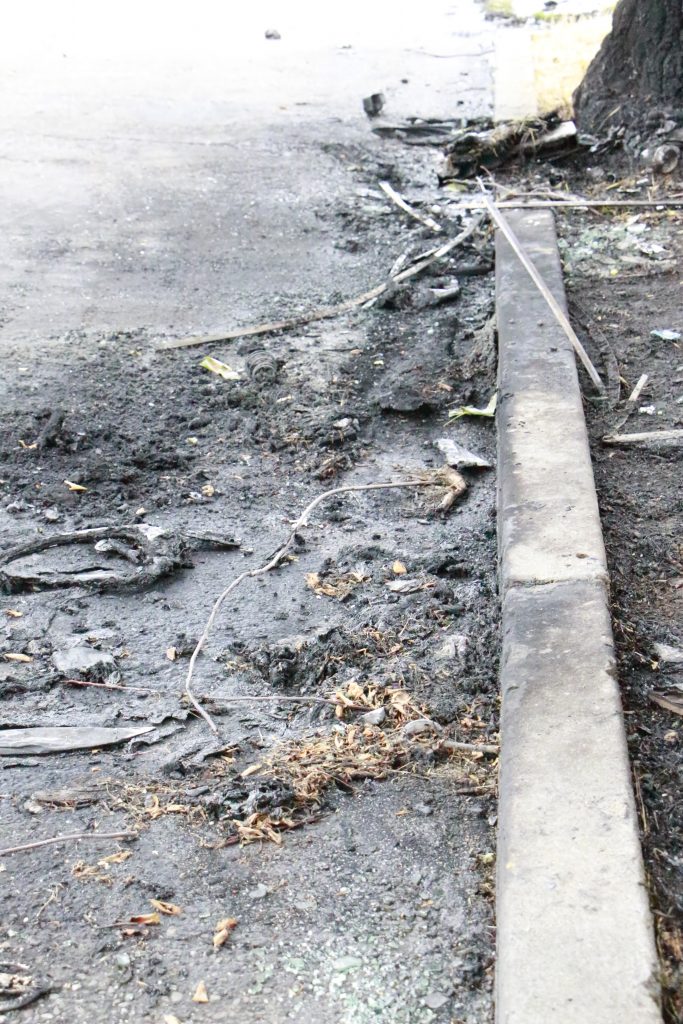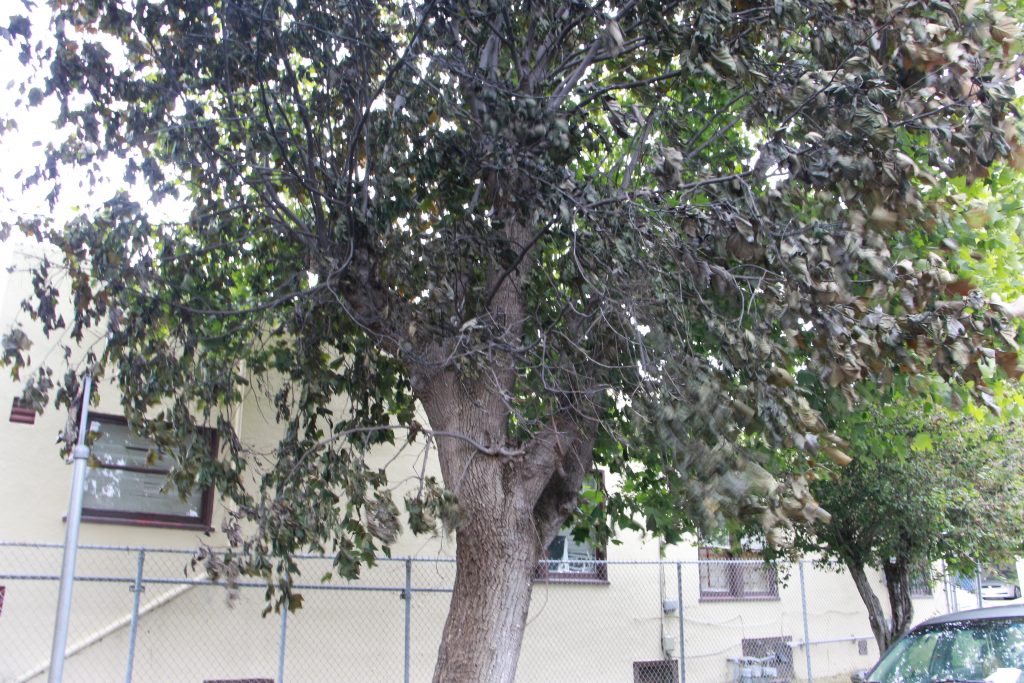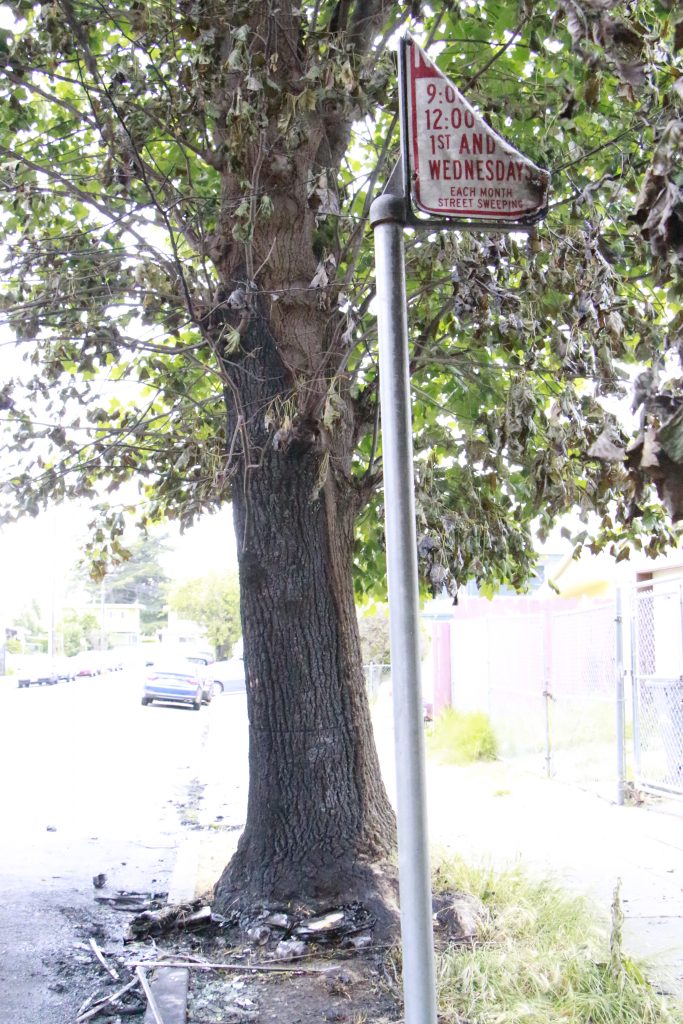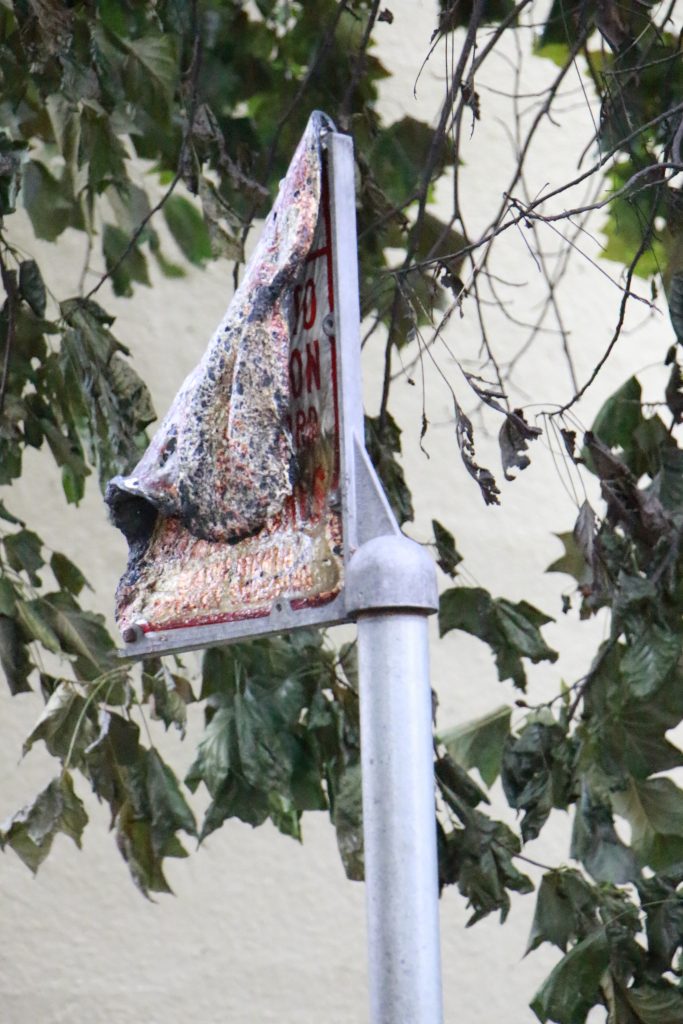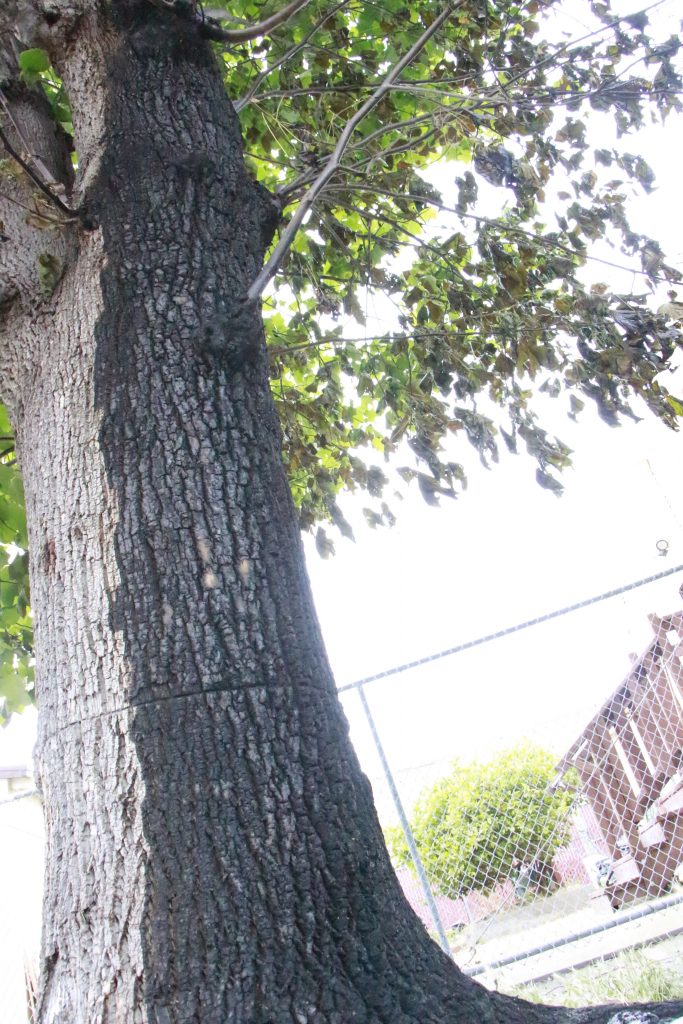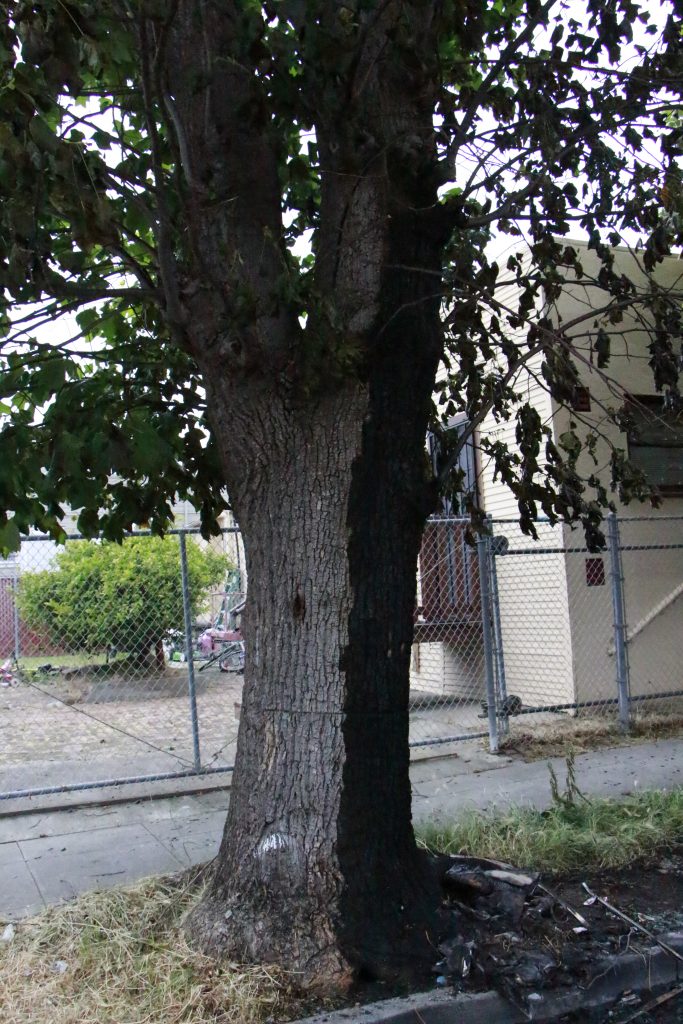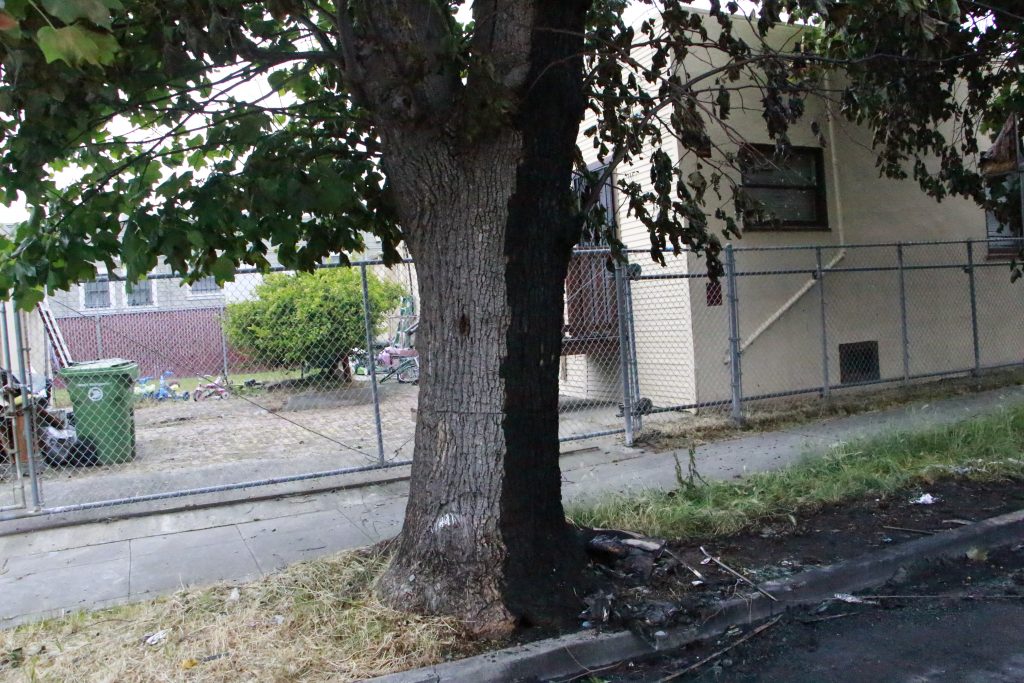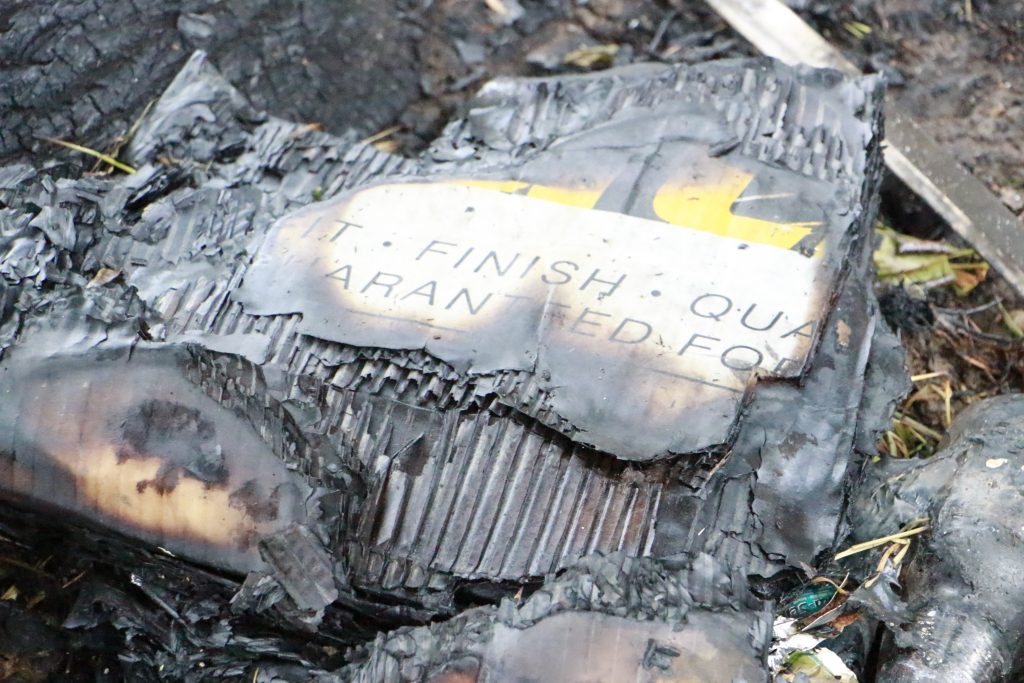4 July 2013
As Bay Area Rapid Transit workers continue pushing for fair contracts today by extending the walkout which began on Monday, 1 July, many are still unaware of the issues at hand. Corporate press has been willing to portray workers as selfish and unwilling to negotiate, but union representatives, leadership and those directly working in the negotiations, have a different story to tell. They were more than willing to inform the public how BART management and the City of Oakland has been dishonest, not only in their dealings with Labor, but in their reporting to the citizens of Oakland.
Oakland heated up far beyond the scorching outdoor temperatures Monday, with BART and Oakland City Workers shutting down the city by going on strike. All in all, it was a peaceful day of protest, largely due to support by the Oakland Police Department for the striking workers.
A series of video clips shows how the day went. Quite a few have been transcribed for those who don’t like watching long videos. These statements made by union representatives is crucial to understanding the reason for the walkout.
Away from downtown, stations were quiet. A handful of folks picketed the work yard and at Lake Merritt BART Station, to the glee of honking drivers passing by. A couple of strike captains were willing to speak to the camera.
As we’ve seen in recent years, when OPD does not support the message, they’re happy to deliver whatever violence they can muster to get protestors out of the streets. No such thing occurred on Monday. In fact, officers pulled traffic duty to keep union workers safe as they clogged the corner of 14th and Broadway for a pre-rally noise session.
Meanwhile, Oscar Grant Plaza was set up for the gathering, including this tent set up by radio folks for interviews. The original article with video includes part of an interview with one of the International Federation of Professional and Technical Engineers Local 21, the union which represents some of the workers of the City of Oakland. The IFPTE has a membership of 80,000 in the U.S. and Canada, and has been in existence since 1918.
Next, a firefighter from the American Federation of State, County, and Municipal Employees, in town to support the strike, explained that his own union maybe be out on strike on Thursday and Friday this week. AFSCME ‘is the nation’s largest and fastest growing public services employees union with more than 1.6 million working and retired members.’
Renee Sykes, vice-president of Local Chapter 21 of the IFPTE did a great job of explaining what’s been happening with negotiations for a contract for workers, as their contract expired Sunday night. Again, that video is in the epic video version of this article!
Then it was time to use the little stage which had been set up for speakers. First up was Father John, who invoked the ancestors to bless the striking workers.
Next, Rabbi Lynn Gottlieb offered solidarity to Striking Oakland Workers.
Union Representatives came from all over the country to support bay area workers. The Service Employees International Union an organization of 2.1 million members. Gary Jimenez is East Bay Regional Vice President of SEIU Local 1021. He introduced Roxanne Sanchez, who is Local 1021 President, who in turn introduced Eliseo Medina, SEIU International Secretary-Treasurer. Medina addressed the big picture :::
We don’t need any more walmart jobs in the Bay Area… And sometimes, you also have to stand up to fight for your community, to make sure that we maintain the services the public needs. We need more, not less, library services. We need to insure timely and safe trash pickup. We need graffiti abatement and jobs for our youth. And we need a safe and dependable public transit system. But all of this, all of this begins with workers being treated fairly, and not as the first place to cut. Because we know that the soul of BART and Oakland does not live at City Hall or at the BART headquarters. It lives with the workers who deliver the services every single day, rain or shine. BART and Oakland only works because you do. And that is what this strike is all about : a fight for the future for your families and community. And let me tell ya, that is a fight worth fighting.
But brothers and sisters, you are part of a struggle that’s going on throughout this country : in Michigan, in Texas and Wisconsin, and even in Puerto Rico. A struggle to protect the middle class and the American dream. Workers are standing up and fighting back. They’re saying it’s time for the greedy bankers, the developers, and the corporations to be held accountable, so that they pay their fair share of maintaining vital public services. We don’t want any more bailouts. No more special deals. No more high interest rates on municipal bonds, and no more trafficking, with the mortgage crisis that they created. Enough is enough!
Brothers and sisters, they created the crisis. They need to fix it, and they need to fix it now! Brothers and sisters, this is a tough struggle, but we know that you are tougher. We know that you are up for the fight, and that you will win, because you are right, and because you will not take no for an answer.
We are here today to tell BART and the City of Oakland that you are not alone. You have the full support of the 2.1 million members of SEIU. Your fight is our fight. Your struggle is our struggle. We are one family, and when you take one of us on, you take all of us on!
We are here to help whenever, in whatever way you need, and in the end, we will win. As Martin Luther King Jr. reminded us, ‘The moral arc of the universe is long, but it bends toward justice, and we shall overcome.’ Cesar Chavez taught us, ‘There is nothing a united, determined people cannot accomplish. Si se puede!’
Yes we can and yes we will!
Medina is a tough act to follow, but Bob Schoonover of SEIU Local 721 did fine with his rousing short speech. ‘The economy is all your fault, right? NO IT’S NOT!’
Laphonza Butler is President of SEIU ULTCW … United Long Term Care Worker’s Union, and also president of SEIU California State Council. the ULTCW represents 180,000 in-home care providers and nursing home workers throughout California, making it the largest union of long term care givers in California and the second largest SEIU local in the nation. Butler was at the mic next to keep things fired up :::
We stand with LABOR at the City of Oakland and at BART today! … On behalf of the 700,000 SEIU members of the state of California … I’m here to let all of you know that the state council at every single SEIU Local in California is making phone calls, is knocking on doors, is doing everything it takes to make sure that these agreements get settled, get settled fairly, and that we are winning, not just for ourselves, but that we’re winning for our communities. So on behalf of all 700,000 members of SEIU in California, we stand united with you today, we stand united with you tomorrow, and we’ll be there until the very end.
Pete Castelli is Executive Director and SEIU 1021’s Lead Negotiator for the Oakland contract. He gives us some historical context by telling the story of the group of mainly women clerks who picketed in 1946 in Oakland to get recognition for their union. Other unions supported them then, as is happening now. In 1946, solidarity worked! Castelli had this to say :::
What that’s about is standing up. We’ve seen the banks get their money back. We’ve seen Wall Street makin’ their money back, and we’re being sold out. That’s what this story’s about. That’s what the story at BART’s about, City of Oakland, every union that’s in negotiations. As the economy goes up, they wanna restructure our lives, restructure our jobs and make us consultants, and talk in terms that we’re a liability, when we own this community, we live in this community, we spend money in this community, we are the community.
SEIU Local Chapter 1021 President Dwight McElroy talked about corruption, and dishonest efforts by the city to fool the public :::
The media’s asked me about the negotiations, but this strike is not about only our negotiations. When you have elected leadership, and employed leadership hired by the elected leadership, that you should be able to expect dignity, transparency, and honesty from, and it’s not forthcoming, we, the community and the people, must force those values forward! When you have an administration that is so hell bent on busting the union that they will hide $57 million in a budget – from the community – every dollar that flows to and through the City of Oakland belongs to the citizens. And once it became apparent to us, because of our provisions at the bargaining table, and because we were able to hire experts to evaluate the chicanery, the shell game, and the deceptive budgeting policies that have been coming forth so that the public would be misled into thinking ‘it is the police or services.’ That is not the truth, and it is our obligation to insure that the public dollar be spent in a manner that serves the entirety of the City of Oakland.
We are fortunate to either reside or work in one of the greatest cities in America. And I will not, neither will my co-workers, neither will the partners at the bargaining team – we will not allow some imports from places, some being San Jose, to come in here and misuse, abuse, or in any other way … 100% services to the citizens of the City of Oakland. As far as I’m concerned, it’s either unability [sic] to do the work, or dishonesty. You make your own choice, I’ve made mine.
The word transparency means a clear view, with no object between the viewer and what you’re lookin’ at. That’s the dictionary. Is that what the budget looks like? (nooo, says the crowd) Is that on purpose or on accident?
At the end of the day, I’ll leave you with this. We, as a body : the labor, the union, the communities, and the unrepresented : the people nobody’s talkin’ about : the individuals who are hired at the City of Oakland who have no work rights, who have no health care, who have no benefits – somebody’s got to start speaking up and say ‘you cannot continue to mistreat these individuals.’
Today is the beginning of making some individuals who thought they had the power, and who thought they had the authority, change their modus operandi.
I got a secret to share : I got prayed on at church and the bottom line is this : we know the victory is ours, we just not sure exactly when it’s gonna come. But we’re gonna stand fast, stand together, and the victory will be Oakland’s!
One last thing. Our bargaining team, our negotiator, and our lead seniority person is willing and ready to meet. And, in a meaningful way, not the circus bargaining that’s been going on since march, we are prepared and ready to sit down at any point in time and have a discussion with the city leadership about a fair and honest contract – one that benefits the total city of Oakland.
Let’s not forget. Our, the smallest, the most minute … the least senior person in the City of Oakland, that’s the one we wanna protect, because if we protect that one, everyone else is covered.
Renee Sykes then took the mic on behalf of IFPTE Local 21 : Oakland City workers. Sykes introduced and thanked people who are supporting this strike, including members of other unions.
Then the politicians stepped up. First, Councilmember Desley Brooks, who called out City Administrator for playing with the books. Santana has previously been caught being dishonest, by trying to bury findings of the Frasier Report about the violent actions of Oakland Police against Occupy Oakland. :::
There is no reason that the City of Oakland can’t bargain in good faith. I feel like, sometimes, I’m working for one of those big banks on Wall Street. Y’know the ones who keep makin’ money on your back. And then they forget how they made the money, and they wanna keep it all. We have unanticipated revenues, and yet we told our workers that we couldn’t give them a raise. We have money that the mayor has tucked away, and yet we told our employees that they have to pay for their health care. We are doing better than we’ve done in a long time, and we know that one of the reasons that we are where we are today is because our employees, our civilian employees, gave back $122 million. And so for those people in the community who wonder why today our employees who struggle just to get by need us to turn around and give back, tell ’em there’s 122 million reasons why.
There’s a song that says ‘let them hear you.’ Let them hear you. Let Deanna Santana and the mayor hear you.
I hope, I hope that you’re gonna continue to press, stay together, stay strong, stay focused – you will prevail, thank you.
New councilmember Noel Gallo also joined in to push for respect for employees and a safe, clean city.
Elizabeth Alexander is SEIU vice-president of politics. She called on community groups : Alliance of Californians for Community Empowerment (ACCE) ‘is a multi-racial, democratic, non-profit community organization building power in low to moderate income neighborhoods to stand and fight for social, economic, and racial justice’; walmart union folks Our Walmart; Causa Justa :: Just Cause (CJJC), ‘a multi-racial, grassroots organization building community leadership to achieve justice for low-income San Francisco and Oakland residents’; among others : to show themselves, having come in support. She rattles off : Dan Siegel and Walter Riley (who have both been working to get justice for Alan Blueford, who was murdered by Oakland Police Officer Miguel Masso), Adam & Jeralyn Blueford from Justice for Alan Blueford Coalition, HipHop Congress, EBASE, Occupy Labor Solidarity, Harvey Milk Democratic Club, San Francisco Latino Democratic Club, Dream Act Dreamers, among others.
Dominic Ware spoke well for Our Walmart. He reminded people about their recent two-week strike in which two women were fired.
Alia Phelps spoke from ACCE. She addressed the issues of the strike affecting low-income people, but said low-income people experience transportation problems all the time, not only during this strike. She points out the many millions lost by BART and AC Transit to the banks.
Civil Rights Attorney and Activist Dan Siegel joked about it being hotter inside city hall than outside (temperature in the eighties) … talked about services : library, roads, programs for elders & seniors, decent wages, benefits, and no more furloughs for city employees. He warned ‘this is not gonna end today.’ He finished up with a valid claim that we have enough police with 650 officers … that we don’t need more, we need them to be deployed appropriately … ‘out from behind their desks.’
Siegel was followed by an Oakland resident activist who talked about having been a long time on this trail to end poverty :::
Thank you for standing up and giving the labor movement of Oakland and the country a backbone again. … Let me just say, as a soldier that’s been on this trail a long time about the business of eliminating poverty, we understand that the true place to get the money is from Wall Street and the banks. When have you seen a banker crying broke? When have you seen a foreclosure on them? The foreclosures are on our community. So only when we get about this business, not simply a protest, but a fight for a different vision. We’re about the business of transforming, so that our communities, our generations of children, so that our schools and libraries, so that our we, the people, might thrive, and not merely survive …
If ya listen to some of the radio shows, they say, ‘look, I haven’t got a raise, a break, I haven’t got extra time, why should they get it?’ What’s so important about this strike : this is about rejecting the proposals of divide and conquer and standing up and stating : the one percent needs to be pushed to the side, so we, the ninety nine percent, can handle our business for the future forward …
We don’t have to live like this. We ain’t gotta have people pushing carts and living like dogs. Only to the degree that we allow it, will it stay that way. So thank you for helping to wake people up. Now it’s our job to link up the struggles and build this movement so we might get the justice we need. Economic justice and security now, thank you.
Robbie Clark from Causa Justa thanks workers for daring to strike :::
We’re standing in solidarity because we know that the type of Oakland that working class power needs to build is the type of Oakland that’s gonna prioritize the needs of all Oakland residents. And so we’re united. That means Oakland’s workers, Oakland’s tenants, Oakland’s homeowners, the public workers, everybody who is in Oakland, living in Oakland like I have for my entire life. We have to make sure that our needs of our communities are put first, before the needs of big corporations.
We thank you for your courage, for taking this important step toward making sure that the rights of all people are respected. This is a historic moment. It’s time that we take back the power that we have in Oakland, and build an Oakland for the people the way that it’s supposed to be.
From an article in Businesswire :
“BART workers want just two things in these negotiations,” said Antonette Bryant, president of ATU 1555, which represents BART operators and station agents. “We want to negotiate a fair pay package after going five years with no increases, and we want the district to institute some basic changes that will improve system safety for riders and BART workers.”
ATU stands for Amalgamate Transit Union, and ‘is comprised of over 190,000 members, including: metropolitan, interstate, and school bus drivers; paratransit, light rail, subway, streetcar, and ferry boat operators; mechanics and other maintenance workers; clerks, baggage handlers, municipal employees, and others. ATU can be found in 44 U.S. states and the District of Columbia, and nine Canadian provinces.’
Here’s what she had to say on Monday at Oscar Grant Plaza :::
Brothers and sisters, good afternoon. C’mon now, GOOD AFTERNOON! That’s what I’m talking about. …
We stand in solidarity with the City of Oakland workers, we stand in solidarity with the IFPTE, we stand in solidarity with every working family member that is on strike…
I’ve heard it resonate throughout the day, about every company that’s trying to tell their employees, ‘you’ve gotta give back, give back, give back; there gotta be cuts, cuts, cuts.’ We are on strike today for respect, for safety, for fair labor practices and for our families. We know you are as well.
I want each and every one of you to reach in your pocket and see if you have four quarters and pull ’em out. This is not rhetorical. Do you have four quarters? Pull ’em out. Yesterday that’s what BART offered our employees : a dollar a year. One dollar. Do not be fooled by the press that is saying eight percent. It is one dollar.
In that eight percent they forgot to indicate they wanted us to give back to pension, which is 92% funded, they wanted us to give back on healthcare. We have a proud, strong union family at BART, and we are proud to stand with you out here on this struggle.
We do difficult jobs, like many of you. We have the honor of working with the public, and the systems that have been cut back, where services are reduced. So patrons are angry and assaults are up. Like many of you, we have equipment that causes us to be injured. And our company does not want to treat our injured workers fairly. We have put through information that will get us back to work. They are rejecting. Instead they’re offering us a dollar. They’re paying out of state consultants $400,000 … [sound problems]
They paid an out of state consultant four hundred thousand dollars for part time work to come in and try and tear up our contract. [more sound problems . then finally someone brings bullhorns!]
I’m so impressed to have heard brother McElroy, who said this, ‘It will take a strike to get the truth, then that’s what we will do.’
The dollar they’re offering us is a dollar a year : not an hour, not a day, not a week, not a month, but one dollar a year. If it takes a strike or two to get their attention, then that’s what we will do. I ask you to share this message with your friends and family, because it’s being distorted by BART.
An injury to one is an injury to all. Let them know that their commute is our workplace, and we wanna do it right and we wanna provide a safe working environment and a safe riding environment.
We stand with you today. ATU!
Next up were Des Patten and John Arantes, professional and general SEIU chapter presidents.
The formal rally was concluded with a song.
But that wasn’t the end of the action on Monday. Workers returned to the picket lines, covering the doors of city buildings to assure that nobody entered without at least being informed what it means to cross a picket line.
The city had promised no parking enforcement during the IFPTE’s one day action, but people had reported receiving parking tickets. While keeping vigil, picketers witnessed a meter maid returning from a day of ticketing cars!
A few of screenshots, in case Oakland City workers want to know who crossed the line :::
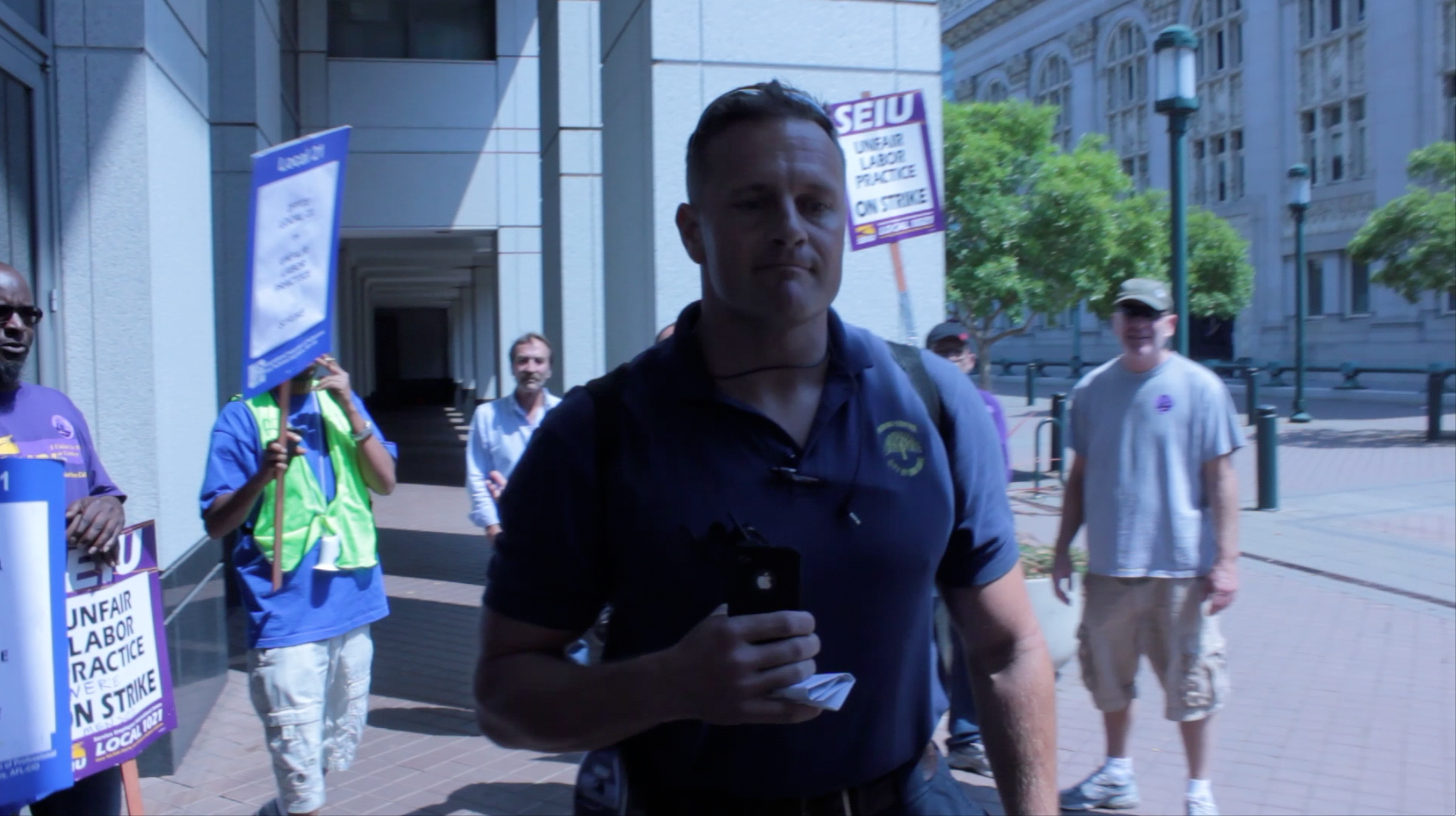
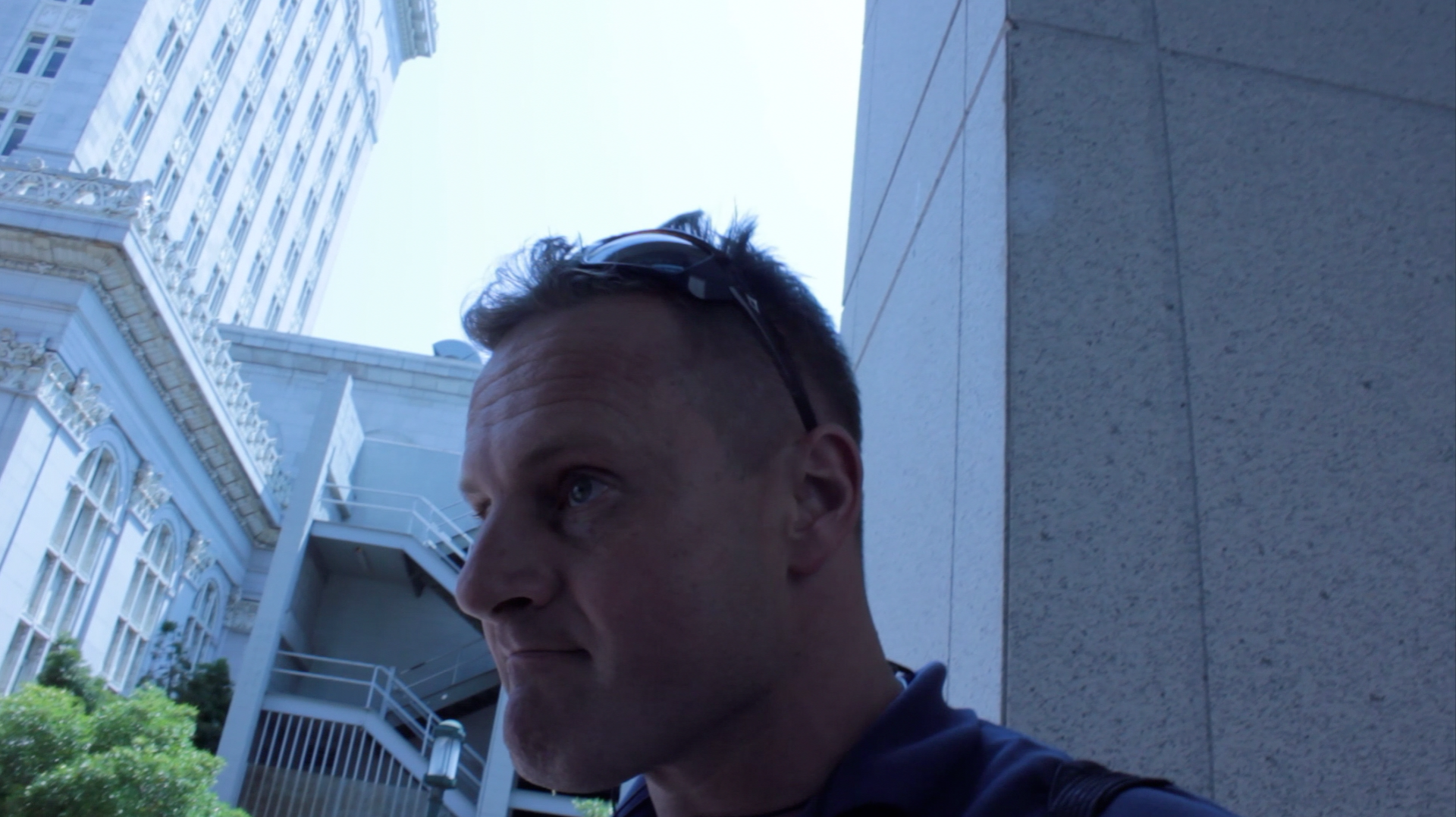
scab getting nervous
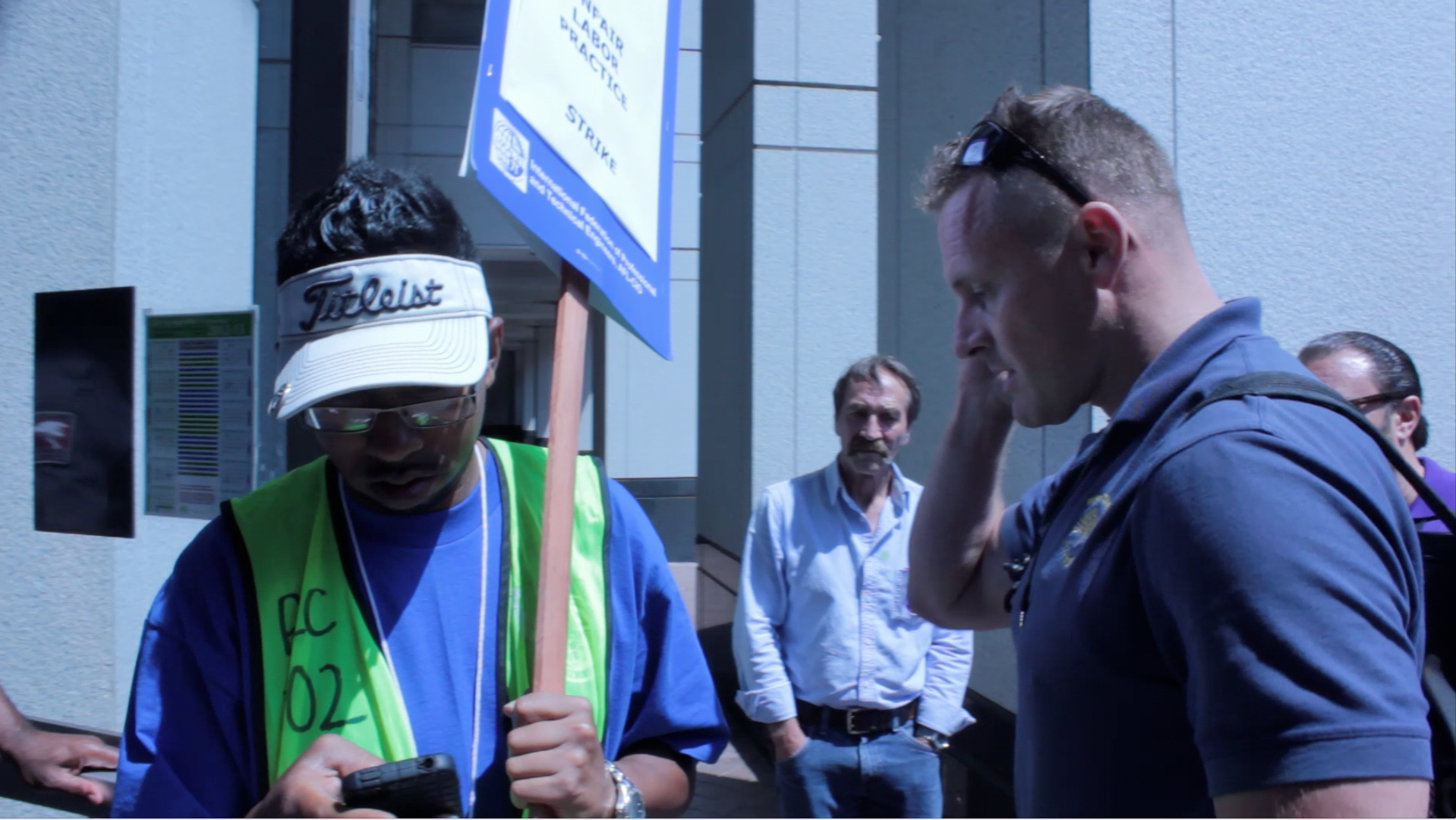
scab calling for help
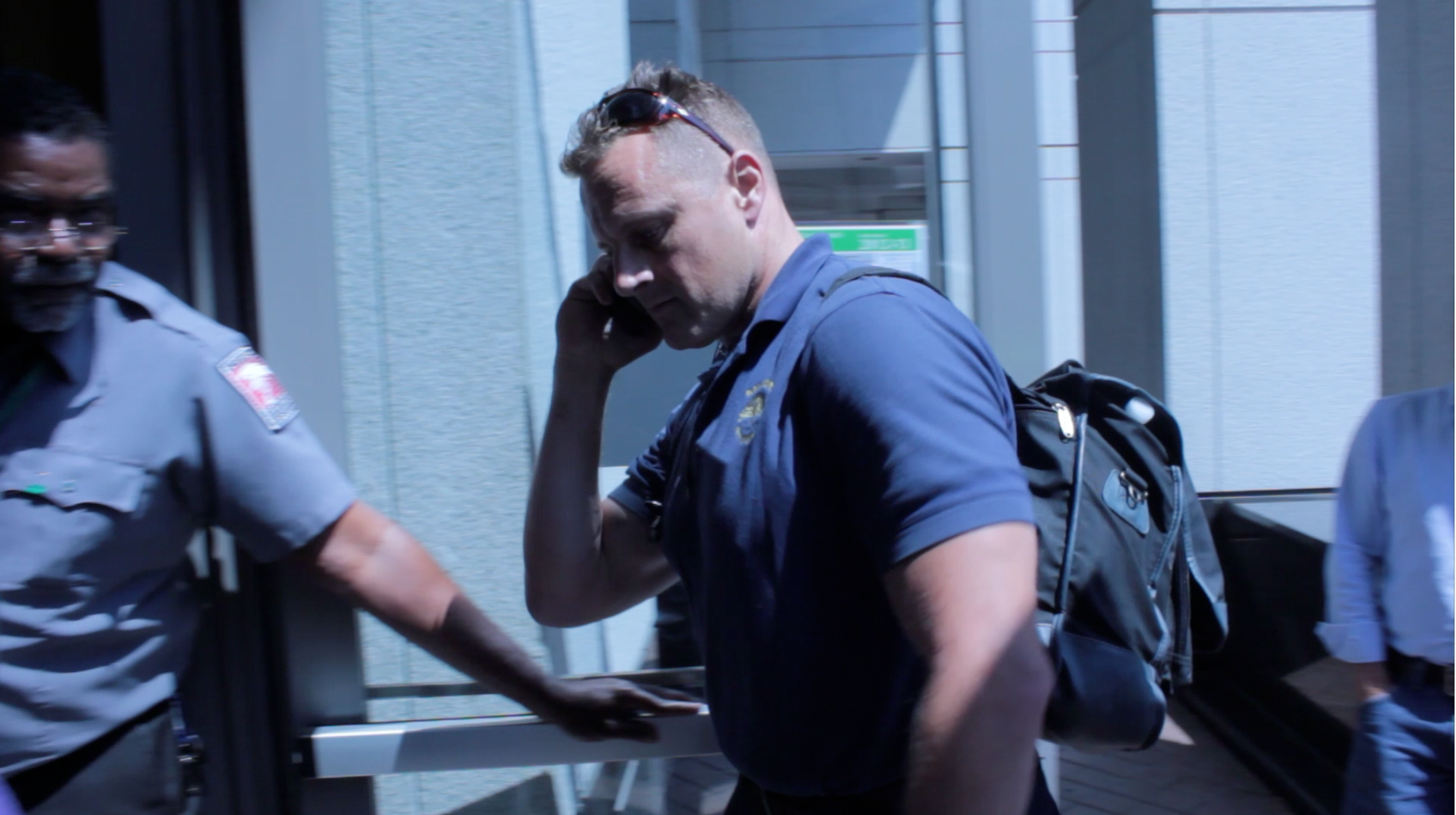
On Tuesday, the Oakland Tribune reported that the City will be forgiving parking tickets which were issued during the strike.
…
much thanks to aredridel for editorial support!
